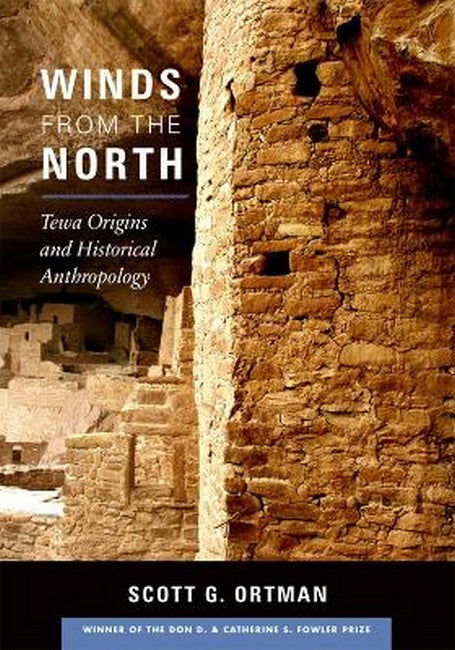Scott G. Ortman is an Omidyar Fellow at the Santa Fe Institute and the Lightfoot Fellow at the Crow Canyon Archaeological Center.
Request Academic Copy
Please copy the ISBN for submitting review copy form
Description
Table of Contents Foreword by Porter Swentzell Acknowledgments 1. The Puzzle of Tewa Origins 2. Inheritance and Ethnic Groups 3. Population and Movement 4. Population History of the Tewa Basin 5. Biological Variation and Tewa Ancestry 6. The Tewa Language in Kiowa-Tanoan Context 7. Homelands and Dating of Kiowa-Tanoan Subgroups 8. Place-Names, Place-Lore, and Oral Tradition 9. Metaphors, Language, and Archaeology 10. Mesa Verde Metaphors in the Tewa Language 11. Immigration, Population Movement, and Material Culture 12. The End of Mesa Verde Society 13. The Archaeology of Tewa Origins 14. Population Movement, Social Movements, and Ethnogenesis Appendix A. Kiowa-Tanoan Reconstructions Appendix B. Archaeological Dating of Kiowa-Tanoan Terms Appendix C. Correlation of Site Numbers with Tewa Names Appendix D. Correlation of Kiowa-Tanoan Speech Communities with Archaeological Complexes References Cited Index
"Winds from the North is the most comprehensive and anthropological study of the origins of a single Native American ethnolinguistic group in the Southwest. ... Ortman's historical anthropological approach to the study of ethnogenesis is both novel and transformational. His integrated analysis of biological, linguistic and material culture variation serves as a model for future research on population origins and ethnogenesis by biological anthropologists."--American Journal of Physical Anthropology "Ortman's book points the way for continued Kiowa-Tanoan research and is commendable for bringing up Kiowa-Tanoan as a research area that should be situated in a cultural context as much as possible. This remarkable book shows that genes, language, and material culture have independent paths, but that by considering their separate trajectories jointly, it is possible to recover many details from the past."--International Journal of American Linguistics "The scope of Ortman's book is immense and reifies what a modern four field approach toward anthropological inquiry looks like. ... It has, without a doubt, set a precedent for future anthropological and archaeological research in the Northern Rio Grande region."--Ethnobiology Letters "A very significant contribution. It will prove to be a landmark study since it shows new ways forward to the many archaeologists all over the world who are grappling with the sort of long-standing problem, concerned with questions of migration and ethnic identity, that Ortman addresses. It combines theoretical sophistication, solid methodology, and a detailed knowledge of a range of different types of evidence."--Stephen Shennan, Director, UCL Institute of Archaeology

